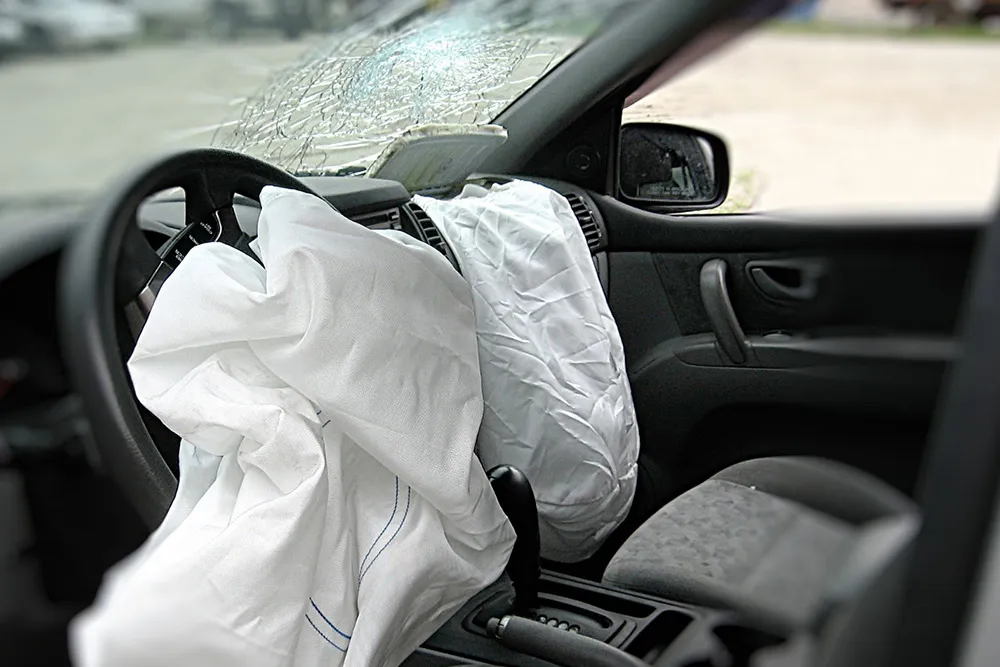Call Today For A FREE Consultation
561-507-5700
24 hours a day | 7 Days a week ESPAÑOL

Home / Blog
Florida As a No-Fault State: The Meaning for Personal Injuries and Claims
![]() January 11, 2023
January 11, 2023
Whether you’ve driven for years, or are still learning, it’s important to know what your rights are in case you’re ever involved, and injured, in a traffic collision. This is especially important for Florida residents, as the Sunshine State implores the use of something called a “No-Fault” law. This phrase can sound pretty confusing at first, as it isn’t very self-explanatory, but is one of the most important fundamental vehicle laws you may come across. So what exactly does it mean, and how does it affect Florida residents? Below we’ll discuss this, as well as how the No-Fault laws can help protect you and what you can do in case you ever get into a car-accident.
Is Florida a No-Fault State? What does that mean?
Florida is one of 12 states that uses a version of the No-Fault law, which is an effort to provide financial protection to residents injured in an automobile accident. The law states that in the event of an injury, each driver’s medical expenses are to be paid for by their respective insurance company, regardless of who was at fault. This includes things like hospital fees and lost wages. In order to accomplish this, something called Personal Injury Protection Insurance is used.What Exactly is Personal Injury Protection (PIP) Insurance?
PIP Insurance, sometimes referred to as No-Fault Insurance, is required by the state of Florida to be carried by residents in addition to their vehicular insurance. Its purpose is to provide coverage for medical and related expenses so that anyone involved in a car accident can seek medical attention immediately without the need to wait for insurance companies to decide who’s at fault. Typically, a minimum of a $10 000 policy is required, but any driver can choose to purchase additional coverage if they wish to.What is covered by PIP Insurance?
In general PIP Insurance will cover medical costs, lost wages from missing work, as well as any related expenses, such as extra childcare if your injuries make it impossible to care for your children properly. Additionally, PIP Insurance will extend this same coverage to each individual who was in your vehicle at the time of the collision. However, it’s important to keep your policy’s limit in mind, as anything beyond that will not be covered by insurance.Does the No-Fault Law Prevent Legal Action?
Though PIP Insurance may be sufficient to cover your medical bills, you may wish to file a lawsuit to cover the remaining expenses. For this reason, it’s always recommended to collect the following information as soon as possible after a collision:- The name, license number and insurance info of the other driver(s) involved
- The license plate numbers of all vehicles involved
- Pictures of the collision from multiple angles
- Pictures of any visible injuries sustained by you and/or any others in your car
- Copies of official documents, such as police reports
Florida is a No-Fault State, and That’s a Good Thing
The No-Fault systems were created with the express purpose of protecting drivers, and preventing them from having to go through lengthy court proceedings just to get coverage and compensation. Even though PIP Insurance has its limits, understanding how the system works and what you need to do in order to receive proper coverage is essential if you ever find yourself injured following a car-accident. If you have any questions about the No-Fault laws or PIP Insurance, we at Personal Injury of Florida have the knowledge and experience to make sure you’re fully prepared to claim the full compensation you deserve.![]() January 11, 2023
January 11, 2023
Recent Blogs

Airbag Injuries in Florida – 2 Legal Implications
Mar 18, 2024
Speak directly with an experienced Personal Injury Attorney today at no cost to you.
Call 561-507-5700

